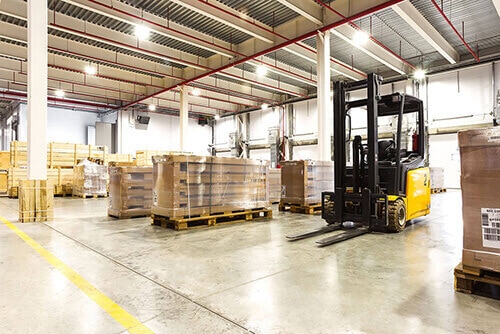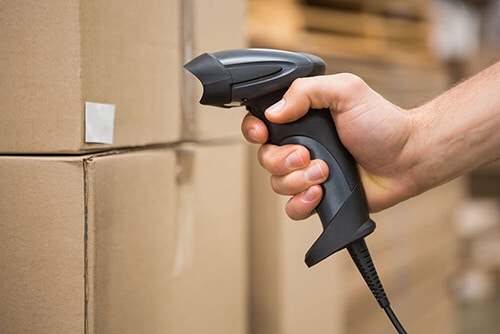How Better Warehouses Increase Trade in Africa

Kuwait-based Agility Logistics Parks customers can log-on to view contracts and make payments.
UK MOD personnel can log-in to the GRMS portal to schedule household relocation shipments.
Kuwait-based Agility Logistics Parks customers can log-on to view contracts and make payments.
UK MOD personnel can log-in to the GRMS portal to schedule household relocation shipments.
Digital technology is changing the way the world does business and doing so at an extraordinary pace. Whatever your part in the supply chain – customer, supplier, or logistics provider – the speed at which new technologies are being developed can be bewildering.
Agility is working with customers and partners to adapt to this fast-changing landscape. This guide is intended to help you identify which technologies your business should be concentrating on right now.
Agility’s Chief Digital Officer Biju Kewalram says the supply and logistics industry is at a very early stage of its digital evolution, and compares it to the period of the Model T Ford in the car industry.
But just as with the development of the auto industry, some of the areas that attract a lot of hype may prove to be expensive dead ends and some of the less glamorous technologies may turn out to deliver the best returns on investment.
Should you spend heavily on cutting edge last-mile solutions like delivery drones? Does your warehouse need to be fitted with advanced robotics or augmented reality? Without limitless funds for research and development, how will you know what works for your business?

Success in the digital supply chain will be determined more by fostering the right mindset than making the right bet on a particular technology. The key is to take an agile, experimental approach.
The unprecedented pace of change means traditional ways of evaluating technologies are outdated. There simply isn’t the time for a company to carry out a full-scale trial to study how a technology will affect its entire business.
At the same time, sweeping one-off changes to the company’s entire workflow are likely to be too expensive, and too late.
Instead, Agility recommends continuous incremental change – small trials and pilots on a specific part of your process. This allows the trials to be evaluated using real data on the actual impact on your business, rather than based on intuition or hopes for what the technology might one day do.
Successful tries should be scaled up, and monitored carefully as the technology is spread through different parts of your business. But it is also important to be prepared for experiments to fail, and to be able to walk away with small losses. Those failures – and the knowledge of how and why something didn’t work – can then be applied to the next trial.
The success of many technologies will depend on the development of new ecosystems. It’s best to work with trusted partners and other stakeholders to find out how the changes you make affect each other.
There will be no settled end state. We live in an age of continuous innovation. Ever-changing technology means there will always be a need to keep experimenting. Technologies that didn’t have the desired effect when you tried them the first time will need to be looked at again and again, as your processes and the environment you operate in evolves.

This is what Agility is doing constantly: working with partners all the way along the supply chain to test how emerging technologies work in the real world.
We currently have a watch list of 16 technologies that are worth keeping an eye on, ranging from machine learning and the cloud to 3D printing, virtual reality, autonomous vehicles and drones.
We have identified four of these that everyone in the supply chain should focus on.
These are already being used to a greater or lesser degree in certain areas of supply and logistics. We believe they will be the foundation of many of the changes likely to sweep through the industry.
They are the BIRD technologies – Blockchain, Internet of Things (IoT), Robotic Process Automation (RPA) and Data Science. Agility has created guides to each of these that help explain how they work, what they can do, and how they can benefit your business.
The BIRD technologies overlap when it comes to how they enhance the way we use data and harness the potential of the digital revolution.
Blockchain establishes trust in data.
Internet of Things provides a vast quantity of relevant data points.
Robotic Process Automation improves the accuracy of data.
Data Science extracts value.
Companies that successfully integrate these four technologies will be in a strong position to take advantage of whatever comes next.
Imagine a product rolling off a production line. From that moment, it is tracked. Its location, tilt, and temperature are securely recorded on an encrypted ledger that cannot be faked. All relevant parties – manufacturer, exporter, shipper, importer, customs official, wholesaler, retailer – have immediate access to the information they need. That information is automatically processed, and there are no errors. The route chosen has been optimized to be cheap, safe, quick, and with the minimum carbon footprint.
Payments can be made immediately with no need for lines of credit. The end recipient knows they are getting exactly what they ordered, delivered in perfect condition. There have been no hold-ups for paperwork, document checks, or delays at port. Lower costs, more satisfied customers, better profit margins.
This is all possible using technology that exists today. Within just a couple of years, it will be common across the industry. With Agility’s help, your business, large or small, can lead the way.